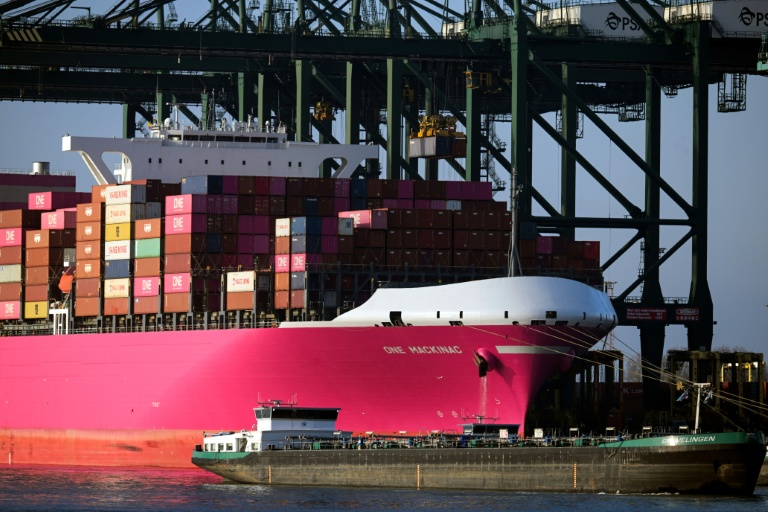The boss of Belgium’s Antwerp port, the second busiest in Europe, has told AFP the giant facility risks being a soft target for drone attacks, as fears swirl over the threat from Russia.
“When you want to create chaos, you attack a country’s economic engine. Here, unfortunately, that is the port,” CEO Jacques Vandermeiren said in an interview.
“We are very vulnerable, which is worrying.”
In November, Europe’s second-largest cargo port was rattled when unidentified drones flew over it.
The incident came as drones were also spotted at other sensitive locations across Belgium, sparking alarm in the country.
Although Russia was not officially blamed, suspicion fell squarely on Moscow as the Kremlin has been accused of waging a “hybrid war” to destabilise Europe during the conflict in Ukraine.
Local authorities already asked last year to bolster air defences at the 12,000-hectare Antwerp port, a key gateway for goods and potentially military reinforcements coming into Europe.
But the recent drone flights — which also targeted a nuclear power station near the port — showed holes in the current capabilities.
“We saw the drones, but our radar systems did not detect them because of the technology used,” Vandermeiren said.
Now, new mobile radars will be delivered “as soon as possible”.
“That’s the good news,” he said.
But he added that getting beefier defences will take time.
Belgian Prime Minister Bart De Wever previously served as Antwerp’s mayor and advocated using Patriot air defence missiles to protect the port.
But even if such a plan were approved, Vandermeiren said the US-made systems would probably take at least five years to arrive.
Stepping up security is a pressing issue for ports around Europe and NATO has expressly included strengthening key infrastructure as part of spending hikes over the next decade.
“All ports in western Europe are more concerned than ever by this issue,” Vandermeiren said.
– ‘War’ on drug trafficking –
While the potential threat from Russia has made headlines recently, another menace has been plaguing Antwerp port for years: drug trafficking.
The port is one of the main entry points for cocaine into continental Europe because of its long-standing trade links with South America.
Although seizures of the narcotic fell to 44 tonnes last year from a record 116 tonnes in 2023, Vandermeiren is not claiming victory.
Drug traffickers are “creative and flexible” and constantly adapt their methods to reach consumers, he warned.
But he points out that demand for cocaine in Europe remains high, so the drug will keep on finding a way to reach the market.
“We will not win this war until we tackle consumption,” he said.
mad/del/ec/jxb
